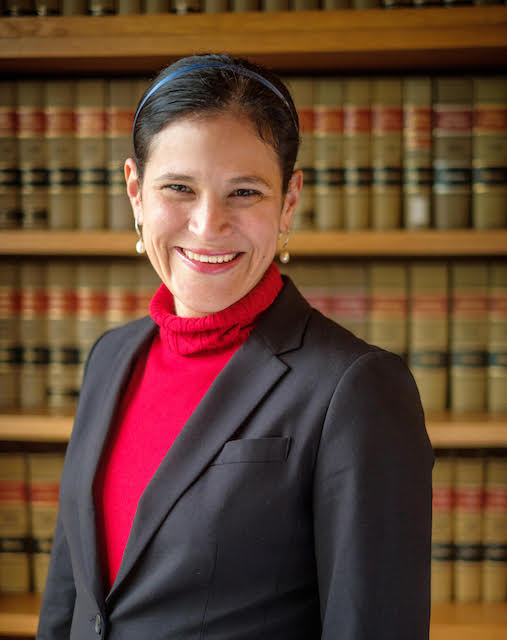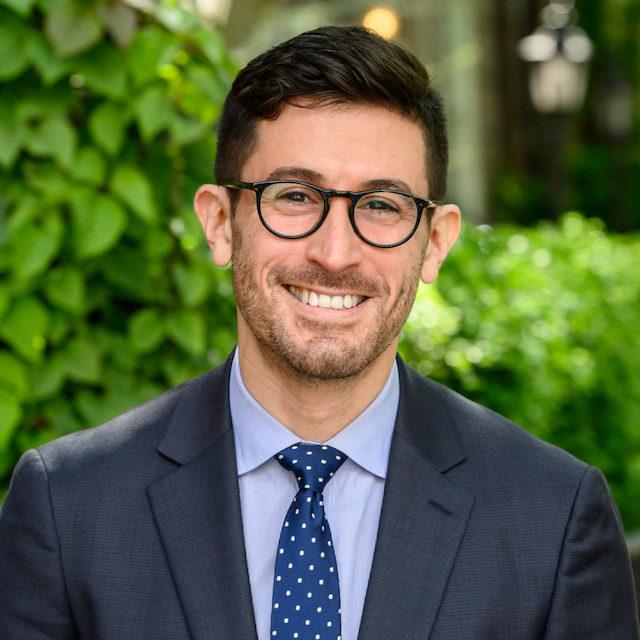Apr 5, 2024 Anthony SebokTorts
Kenneth S. Abraham & Catherine M. Sharkey,
The Glaring Gap in Tort Theory, 133
Yale L.J. __ (forthcoming, 2024), available at
SSRN (Sept. 27, 2023).
Kenneth S. Abraham and Catherine M. Sharkey’s The Glaring Gap in Tort Theory has a dramatic title. The article, which is about the unheralded and unappreciated role that liability insurance plays in tort, promises to make good on two claims—first, that the major (or a major) “missing piece” in modern tort scholarship is liability insurance, and second, once this missing piece is identified, it is impossible to ever see tort law the same way again.
It is easy to quibble with both these claims. As to the first, it is worth observing that tort theory has been taken to task by critics for other failures, which also probably are, in the eyes of those critics, “glaring” and demand urgent correction. For example, mainstream tort theory, it has been observed, like much of academic legal analysis of the common law, ignores gender and race. Others have criticized tort law for its failure to grapple with its commitment to liberal individualism and, by extension, its complicity in the lack of equity in modern society. One might even take the view that tort’s failure to provide a framework through which climate change may be addressed is a “glaring gap” that should be addressed before its failure to identify and discuss liability insurance. Continue reading "We Don’t Talk About Insurance (no, no, no!)"
Apr 4, 2024 Robin J. EffronCourts Law
Pamela K. Bookman, Default Procedures, ___ U. Pa. L. Rev. ___ (forthcoming, 2025).
Theories of procedural justice have long contained explicit and implicit assumptions about the status of parties in the American civil justice system. Procedural rules and proposed reforms reflect beliefs that some parties are well-resourced and powerful and other parties are under-resourced and otherwise vulnerable. For several decades, commentators focused primarily on the needs of individual plaintiffs who faced uphill battles of time, money, and procedural barriers in accessing courthouse justice to vindicate their rights. They portrayed defendants as jockeying for procedural advantages of avoidance—everything from jurisdictional defenses to rules of pleading and discovery to broad powers of summary judgment existed to shield defendants from a merits-based confrontation before a jury.
In the past several years, however, scholars have begun to focus on vulnerable defendants, a class of litigants whose relative weaknesses were rendered nearly invisible by focusing on how parties fare in federal court. Pamela Bookman’s Default Procedures examines state-court rules for default judgments, adding to the growing literature on state-court procedures that have enabled a small group of relatively powerful plaintiffs to run roughshod over the debtors and tenants comprising a significant portion of the defendants in state court dockets. Continue reading "The Pendulum Swings of Access to Justice"
Apr 3, 2024 Ari WaldmanTechnology Law
A few years ago, the CBS show 60 Minutes ran a segment about algorithmic bias. Among other things, the segment told the story of a Black man in Detroit who had been misidentified by a facial recognition algorithm as the thief who had been caught on video stealing $4,000 worth of watches. Anderson Cooper interviewed the victim, his wife, the Detroit police chief, a lawyer at Georgetown’s Center on Privacy and Technology, and a computer scientist at the National Institute of Standards and Technology (NIST). The NIST computer scientist, Patrick Grother, was interviewed because “[e]very year, more than a hundred facial recognition developers around the world send his lab prototypes of test for accuracy.” For 60 Minutes that day, Mr. Grother was the expert on these algorithms.
No offense to Mr. Grother, who I’m sure is a smart guy, but the real experts were missing. Mr. Cooper did not interview the Black women who first brought the problem of algorithmic bias in facial recognition to academic and public attention: Joy Buolamwini, Timnit Gebru, and Deborah Raji. The incident captured in just a few minutes the long history of erasing the contributions of women and of women of color in particular. NIST, which had cited Buolamwini, Gebru, and Raji in its report, got its moment in the sun but never mentioned the underlying research; the police chief got his chance to cast the wrongful arrest as an isolated mistake. The Black women who founded the field were ignored, a fact even more remarkable given that 60 Minutes researchers and producers spent time with Buolamwini in preparation! That this happened in 2021 highlights the desperate need for Meg Leta Jones’s and Amanda Levendowski’s edited volume, Feminist Cyberlaw. Continue reading "Breathing Feminism into the Machine"
Apr 2, 2024 Shelby D. GreenProperty
Chief Justice John Marshall’s opinion in Johnson v. M’Intosh is often taken as the source of some foundational principles in property law. Indeed, it is often the first case, alternating with the fox and hunter, appearing in many textbooks.
The essential points of the case are that discovery is a basis for acquiring property and that Indian tribes held only the right of occupancy of their lands, which could be extinguished at any time at the leisure of the federal government, but in no case did they hold the power to alienate any interest. Professor Sheila Simon, in Johnson v. M’Intosh: 200 Years of Racism that Runs with the Land, offers some compelling reasons why we should not celebrate either the case or Marshall. Continue reading "Contriving a Controversy: The Value of Land in Johnson v. M’Intosh"
Apr 1, 2024 Jedidiah KronckeLegal History
There is an oddity to the place of constitutional law in the modern American legal academy. Law faculties invariably have multiple scholars devoted to its study, it is considered a core curricular course, and, yet most law graduates will never directly practice it any form. There have been debates about its pedagogical merits—revolving around assumptions that the Constitution is not just the foundational document structuring our legal system but has also always served as its deepest reservoir for exploring our most critical collective challenges. As such, constitutional scholarship sits atop an implicit hierarchy of legal inquiry shaping the litigation that putatively confronts, and resolves, the most pressing issues of our day. In turn, the Supreme Court is worthy of center stage in the social production of legal intellectual prestige.
In his mid-career opus, The Constitutional Bind: How Americans Came to Idolize a Document That Fails Them, Aziz Rana attempts to deconstruct this and other such elevations of modern constitutionalism in American society. Most fundamentally, he seeks to denaturalize this state of “constitutional veneration” in which the legal academy is but one facet of the broader American embrace of “creedal constitutionalism.” The near deification of constitutional law, the Supreme Court, and the Constitution as core elements of American identity, Rana argues, is a relative novelty in American history. Every element of our current reverential preoccupation with the Constitution, whether in the legal academy or in our larger social politics, simply did not exist for most of the nation’s collective history. Continue reading "America’s Constitutional Self-Sabotage: Escaping the Constraints of Imperial Accommodation"
Mar 29, 2024 Mark KendeConstitutional Law
During the hagiography surrounding the Bicentennial of the U.S. Constitution, Justice Thurgood Marshall dissented. For Marshall, the Constitution could only be celebrated as “a living document.” The original document, and “the government it devised,” was “defective from the start.” Marshall’s words were literally as well as figuratively true, in his view: the document’s flaws began with its preamble and its woefully underinclusive understanding of “We the People.”
Joy Milligan and Bertrall Ross’s recent article, We (Who Are Not) the People: Diversifying Constitutional Interpretation Regarding Fundamental Rights, proceeds from the same premise. “We were never the people,” the article begins arrestingly. Women, minorities, Native Americans, and slaves were irrelevant. The Constitution has procedural and substantive deficiencies, which are “inherent in the document as well as the institutions and rights it creates,” a problem that constitutional theorists and interpreters still have not dealt with sufficiently. Continue reading "Diversifying Constitutional Interpretation Regarding Fundamental Rights"
Mar 28, 2024 Christopher J. SprigmanIntellectual Property Law
Oren Bracha,
The Work of Copyright in the Age of Machine Reproduction, available at
SSRN (Sept. 24, 2023).
In our modern communication environment, conventional wisdom very swiftly captures and narrows our channels of thought. This is due in no small part to the unceasing production of commentary, which means that every perspective on any important new issue is made available and explored (to use the digital age’s most lamentable neologism) in “real time.”
That is true already of the copyright debates around AI. In particular, it has already become conventional wisdom, and the starting point for discussion, that the use of datasets containing copyrighted works for purposes of training AI models involves reproduction of unauthorized copies of those works, and so is a prima facie infringement. The lawfulness of AI training, it is then said, can be established only by determining whether that activity constitutes fair use. Continue reading "Upsetting Conventional Wisdom of Copyright Scholarship in the Age of AI"
Mar 27, 2024 Mathilde CohenInternational & Comparative Law
The colonial origins of public international law are increasingly front and center of scholarly and political discussions in the field. In her insightful essay, Anne-Charlotte Martineau suggests that the supposed “private” nature of private international law also derives, in part, from extractive European colonialism. More often known as conflict of laws in the common law world, private international law governs the resolution of transnational disputes, focusing on issues such as jurisdiction, choice of law, and enforcement of judgments. Martineau recounts that from the middle of the sixteenth century, scholars of the so-called School of Salamanca—the intellectual movement led by Francisco de Vitoria that developed at the university of Salamanca in Spain—were mobilized to legitimize and facilitate enslavement and other violent practices by reconceptualizing the law of marriage.
Martineau’s piece is published as part of a symposium on the interrelation of the public and the private in international law, inspired by the work of late Canadian international law scholar Karen Knop. Martineau’s contribution constitutes a manifesto in its own right, calling for comparative and international law practitioners and scholars “to redress the invisibility of women in the history of international law” from an intersectional perspective. She builds upon Knop’s claim that “recuperating private international law as a lost side of international law can open up counter-disciplinary research on gender in the history of international law” to revisit a debate that arose in the 1540s. Jesuit missionaries in Brazil asked jurists and theologians associated with the School of Salamanca back in Europe to assess the validity of marriages among colonized peoples such as the Tupi people and among enslaved persons. The motivation was initially religious—if these unions were illegitimate under canon law, for example because they were consanguineous, polygamous, or temporary, spouses could not be baptized and converted to Catholicism. In the 1580s, the impetus became primarily economic and biopolitical—as sugar production prospered, European colonizers demanded an ever-growing workforce to exploit. The issue became whether enslaved people kidnapped from Angola and Indigenous people captured in the hinterland (sertão) to work on plantations could enter into second marriages given that they had been forcibly separated from their consorts back home. Continue reading "Is Private International Law Really Private? Gender and Colonialism in the History of Conflict of Laws"
Mar 26, 2024 Cynthia AlkonLexDispute Resolution
During the pandemic, courts in the United States, and around the world, experimented with online proceedings in both civil and criminal cases. The increasing use of online processes during this time focused attention on how moving away from in-person proceedings can change and alter our legal system and continues to raise difficult questions. Are online proceedings a good thing for justice? Can using more technology in our courts help to improve how our legal system works? Could more online proceedings make our courts more accessible and actually improve justice? These are key questions for anyone looking at dispute system design and how our criminal and civil court systems work. Mentovich, Prescott, and Rabinovich-Einy offer an intriguing look into the possibility of online processes to improve access to justice and legitimacy by examining parties’ perception of online processes in traffic cases.
Why traffic cases? Most people are un-represented in traffic cases and they are seen as minor. However, the authors observe that traffic cases can provide an “important insight into the consequences of the shift online for court legitimacy” (P. 191) for three reasons. First, traffic cases are a majority of online proceedings and they use written asynchronous communication, not video or other real-time interactions. Second, traffic cases are a majority of all court cases in the United States. Finally, these cases are cases of individuals directly confronting the government. What happens in traffic court impacts a significant number of people despite the low-stakes. Therefore, examining how traffic court participants who are using online processes perceive the process can give valuable insights. The authors conducted an empirical study of traffic court participants from online traffic proceedings between December 2019 and August 2020. The survey asked participants about their experience both with the online court proceeding and the legal system in general. Continue reading "Can Online Proceedings Bring Better Access to Justice?"
Mar 25, 2024 Reid WeisbordTrusts & Estates
David Horton,
Probate Standing, 122
Mich. L. Rev. __ (forthcoming 2024), availible at
SSRN (August 7, 2023).
Probate cases often arise from a complicated web of relationships between the decedent and family members, friends, caretakers, fiduciaries, and other parties. When the facts of a given case are especially complex, it is sometimes helpful to draw a visual diagram of the various relationships to better understand the dispute’s major fault lines: Whose interests are aligned? Whose interests are adverse? Which parties, if any, represent the interests of non-parties? Which parties are relevant to the dispute but did not enter an appearance? And finally, did any party enter an appearance but lack a legally sufficient connection to the dispute? In Probate Standing, Professor David Horton takes a deep dive into the latter question by expertly examining the important, though often overlooked, gatekeeping doctrine of probate standing. This Article breaks new ground, first, by identifying incoherent branches of the standing doctrine that undermine probate law’s bedrock policy of honoring testamentary intent and, second, by proposing sensible, minimally invasive reforms to clarify the standing rules in probate litigation.
The Article begins with a historical survey of Anglo-American common law from which Horton distills two alternative theories of probate standing: The “property theory” confers standing on anyone who can demonstrate a pecuniary stake in the probate matter. The “status theory,” in contrast, confers probate standing on intestate heirs to contest a decedent’s will. Horton explains that both theories are flawed. Under the property theory, for instance, an undue influencer can unfairly deprive a testator’s intestate heirs of standing to contest the will’s validity by procuring a series of unduly influenced wills because the contestant would have to (but might be unable to) contest every serial will to acquire a pecuniary interest as an intestate heir. Conversely, the status theory grants any intestate heir standing to contest a will’s validity even if the testator devised more than an intestate share to the heir, thus creating a judicial forum for estate litigation potentially motivated by emotion or revenge rather than by rational economic self-interest. Continue reading "Clarifying the Doctrine of Probate Standing"















